The annual iRepresent International Documentary Film Festival will honour some of the recently deceased members of the art and culture community at its opening cocktail on Wednesday.
The event holds at amphitheatre of Freedom Park in Lagos.
The departed artists to be honoured include Pius Adesanmi (1972 – 2019), Okwui Enwezor (1963 – 2019), Paul Emema (1965 – 2019), Olabisi Silva (1962 – 2019), and Nwachukwu Frank Ukadike (1950 – 2019).
According to the festival directorate, “these are very important contributors to the building and sustenance of our creative community, but who have regrettably, moved on to higher services.
“We wish to celebrate their life and career in our own little way as a means of keeping them fresh and evergreen in our memory.”
“Though the festival is conceptually framed around the iREP generic theme of Africa in Self-Conversation, the theme for this year is ‘Storylines,’” the organisers said in a statement.
“It will explore the various dynamics of storytelling with a view to tracing the importance of stories to human and social developments, especially as it concerns nation-building in Africa.
“Over 50 films collected from 22 countries, and three continents – Africa, Europe and the Americas — are expected to feature in the festival.
“Also eight presentations and panel discussions on various dimensions of the theme have been designed to elucidate on the theme, while the various filmmakers in attendance will also interface with the audience on the content, form and techniques of realising their work in an educational exchange manner.”
Short bio of departed artists to be honoured:
NWACHUKWU FRANK UKADIKE
(1950–2018)
He received his Bachelor of Arts from Croydon College, London, in 1980 and a Master’s degree in film and telecommunications from the University of Oregon in 1982, before moving to New York University, where he earned a Master’s degree in cinema studies in 1986 and his Ph.D in 1989.
<img data-attachment-id="321173" data-orig-file="https://media.premiumtimesng.com/wp-content/files/2019/03/FRANK-UKADIKE.jpg" data-orig-size="481,361" data-comments-opened="1" data-image-meta="{"aperture":"0","credit":"","camera":"","caption":"","created_timestamp":"0","copyright":"","focal_length":"0","iso":"0","shutter_speed":"0","title":"","orientation":"0"}" data-image-title="FRANK UKADIKE" data-image-description="
FRANK UKADIKE
” data-medium-file=”https://i2.wp.com/media.premiumtimesng.com/wp-content/files/2019/03/FRANK-UKADIKE.jpg?fit=465%2C349&ssl=1″ data-large-file=”https://i2.wp.com/media.premiumtimesng.com/wp-content/files/2019/03/FRANK-UKADIKE.jpg?fit=481%2C361&ssl=1″ src=”https://onlinenigeria.com/wp-content/uploads/2019/03/irep-2019-honours-adesanmi-enwezor-emema-other-departed-artists.jpg” width=”600″ height=”450″ data-original-width=”600″ data-original-height=”450″ itemprop=”http://schema.org/image” title=”FRANK UKADIKE” alt=”FRANK UKADIKE”>
He was on the faculty of the University of Michigan before joining the Tulane faculty in 1998. Professor Ukadike was a scholar of cinema and film history, with a particular focus on African cinema, and film and media of the African diaspora.
His first book Black African Cinema, published by the University of California Press in 1994, was widely reviewed and much heralded as one of the first books to address the medium through a combination of film theory, history, and theories of decolonizing the “Other.”
In recent years, he published a book of interviews with African filmmakers called Questioning African Cinema (2002), an edited collection of essays called African Cinema: Narratives, Perspectives and Poetics (2014), and was a regular jurist for film festivals. He served on the advisory panels for the NEH, Fulbright, Guggenheim, and the Nollywood Study Center at the Pan-African University in Lagos.
OLABISI SILVA
(1962 –2019)
Founder and artistic director of the Centre for Contemporary Art, Lagos (CCA, Lagos), which opened in December 2007, to promote research, documentation and exhibitions related to contemporary art in Africa and abroad, Bisi curated numerous exhibitions, and was also the founder of the Asiko Art School, which describes itself as “part art workshop, part residency, and part art academy.
She was co-curator of “The Progress of Love”, a transcontinental collaboration across three venues in the United States and Nigeria (October 2012 – January 2013). She was co-curator of “J. D. ‘Okhai Ojeikere: Moments of Beauty”, Kiasma, Helsinki (April – November 2011). She was also co-curator for the second Thessaloniki Biennale of Contemporary Art, Greece, “Praxis: Art in Times of Uncertainty” in September 2009.
In 2006, Silva was one of the curators for the Dakar Biennale in Senegal. In collaboration with the Portuguese art critic Isabel Carlos, she selected artists for the third Artes Mundi prize in Wales. She also curated “Contact Zone: Contemporary Art from West and North Africa” (October 2007) and an exhibition titled “Telling … Contemporary Finnish photography”, in the Seventh Biennial of African Photography in Bamako (November 2007).
She wrote on contemporary art for international publications, including Art Monthly, Untitled, Third Text, M Metropolis, Agufon and for Nigerian newspapers such as This Day. She was on the editorial board of n.paradoxa, an international feminist art journal and was the guest editor for Africa and African diaspora issue of n.paradoxa (January 2013).
PIUS ADEBOLA ADESANMI
(1972 –2019)
Born in Isanlu, in Yagba East Local Government Area of Kogi State, Nigeria, he earned a Bachelor of Arts in French language from the University of Ilorin in 1992, a Master’s degree in French from the University of Ibadan in 1998, and a PhD in French Studies from the University of British Columbia, Canada, in 2002.
He was a Fellow of the French Institute for Research in Africa (IFRA) from 1993 to 1997, and of the French Institute of South Africa (IFAS) in 1998 and 2000. From 2002 to 2005, he was Assistant Professor of Comparative Literature at the Pennsylvania State University, USA.
In 2006, he joined Carleton University, in Ottawa, Canada, as a Professor of literature and African studies.[5] He was the director of the university’s Institute of African Studies until his death. For many years, Adesanmi was a regular columnist for Premium Times and Sahara Reporters. His writings were often satiric, focusing on the absurd in the Nigerian social and political system.
In 2015, he gave a TED talk, titled, “Africa is the forward that the world needs to face”. His publications include The Wayfarer and Other Poems (Oracle Books, Lagos; 2001); You’re Not a Country, Africa (Penguin Books; 2011); Naija No Dey Carry Last (Parrésia Publishers; 2015).
OKWUI ENWEZOR
(1963 –2019)
Born as the youngest son of an affluent Igbo family in Awkuzu in Anambra state, Okwui in 1982, moved to the Bronx area of the USA at the age of 18 after a semester at the University of Nigeria. In 1987, he earned a Bachelor of Arts degree in political sciences at the New Jersey City University.
<img data-attachment-id="321172" data-orig-file="https://media.premiumtimesng.com/wp-content/files/2019/03/Okwui-Enwenzor.jpg" data-orig-size="1024,581" data-comments-opened="1" data-image-meta="{"aperture":"6.3","credit":"Getty Images","camera":"NIKON D4","caption":"MUNICH, GERMANY – MARCH 06: Okwui Enwezor, director of the \u0027Haus der Kunst\u0027, attends the \u0027All the World\u0027s Futures\u0027 International Art Exhibition Press Conference at Haus der Kunst on March 6, 2015 in Munich, Germany. (Photo by Joerg Koch\/Getty Images)","created_timestamp":"1425646941","copyright":"2015 Getty Images","focal_length":"165","iso":"500","shutter_speed":"0.0025","title":"\u0027All the World\u0027s Futures\u0027 International Art Exhibition Press Conference","orientation":"0"}" data-image-title="‘All the World’s Futures’ International Art Exhibition Press Conference" data-image-description="
MUNICH, GERMANY – MARCH 06: Okwui Enwezor, director of the ‘Haus der Kunst’, attends the ‘All the World’s Futures’ International Art Exhibition Press Conference at Haus der Kunst on March 6, 2015 in Munich, Germany. (Photo by Joerg Koch/Getty Images)
” data-medium-file=”https://i0.wp.com/media.premiumtimesng.com/wp-content/files/2019/03/Okwui-Enwenzor.jpg?fit=526%2C298&ssl=1″ data-large-file=”https://i0.wp.com/media.premiumtimesng.com/wp-content/files/2019/03/Okwui-Enwenzor.jpg?fit=604%2C343&ssl=1″ src=”https://onlinenigeria.com/wp-content/uploads/2019/03/irep-2019-honours-adesanmi-enwezor-emema-other-departed-artists-2.jpg” width=”600″ height=”340″ data-original-width=”600″ data-original-height=”340″ itemprop=”http://schema.org/image” title=”‘All the World’s Futures’ International Art Exhibition Press Conference” alt=”MUNICH, GERMANY – MARCH 06: Okwui Enwezor, director of the ‘Haus der Kunst’, attends the ‘All the World’s Futures’ International Art Exhibition Press Conference at Haus der Kunst on March 6, 2015 in Munich, Germany. (Photo by Joerg Koch/Getty Images)”>
After graduation, he embraced poetry, and performed at the Knitting Factory and the Nuyorican Poets Café in the East Village. His study of poetry led him through language-based art forms like Conceptual Art to art criticism. Teaming up in 1993 with fellow African critics Chika Okeke-Agulu and Salah Hassan, he launched the triannual Nka Journal of Contemporary African Art from his Brooklyn apartment.
After putting on a couple of small museum shows, he had his breakthrough in 1996 as a curator of In/sight, an exhibit of 30 African photographers at the Guggenheim Museum. In/sight was one of the first shows anywhere to put contemporary art from Africa in the historical and political context of colonial withdrawal and the emergence of independent African states.
He was the director of the Haus der Kunst, Munich, Germany; and also had the roles of adjunct curator of the International Center of Photography in New York City, and Joanne Cassulo Fellow at the Whitney Museum of American Art, New York City.
In 2013, he was appointed curator of the Venice Biennale 2015, making him the first African-born curator in the exhibition’s 120-year history. Previously, he had served as the artistic director of the Documenta 11 in Germany (1998–2002), as the first non-European to hold the job.
He also served as artistic director of the 2nd Johannesburg Biennale (1996–97), the Biennial Internacional de Arte Contemporaneo de Sevilla, in Seville, Spain (2006), the 7th Gwangju Biennale in South Korea(2008), and the Triennale d’Art Contemporain of Paris at the Palais de Tokyo (2012), among other major international curatorial roles. He served on numerous juries, advisory bodies, and curatorial teams.
PAUL EMEMA
(1965-2019)
Born Paul Okeoghene Emema, he was a native of Oleh in Isoko town of Delta State. Way before he studied Mass Communication at the University of Uyo, he had created and written all the episodes of the popular TV series, Behind The Clouds and later Supple Blues produced by the Nigerian Television Authority (NTA).
His work, Barbers Wisdom was selected as part of the South African ‘New Directions Initiative’, and directed by Amaka Igwe on 35mm; produced by Tajudeen Adepetu. He was co-writer, co-producer and co-director of over 100 episodes of I Need To Know, a commissioned series on girl child HIV education.
In 1999, he was commissioned to direct a biographic feature of the Catholic saint, Father Tansi, produced by Francis Onwochei. He later released a documentary on Hayford Alley in respect of his mission on church growth and set up. He was at a time commissioned by Shell Petroleum to produce 26 episodes of a sensitization drama series: Friends At The Gate.
He did several documentaries for Niger Delta Development Commission, NDDC, and DESOPADEC – governmental agencies catering for the oil-producing states. He was a poet and published author. One of his plays is titled A Plague Of Gadflies which he had hoped to put on stage before his final call. (Adapted from a tribute by Francis Onwochei)
You may be interested

James Returns To Training After Hamstring Injury
Webby - October 15, 2024Chelsea captain Reece James is back in training with their first team for the first time this season, according to…

Barcelona In Race To Sign Partey On Free Transfer
Webby - October 14, 2024Barcelona are reportedly in the race to sign Thomas Partey on a free transferad his contract with Arsenal is set…

Arsenal Preparing New Contract For Madrid Target Saliba
Webby - October 14, 2024Arsenal are drawing up a new contract for William Saliba as they look to stop the defender from even considering…










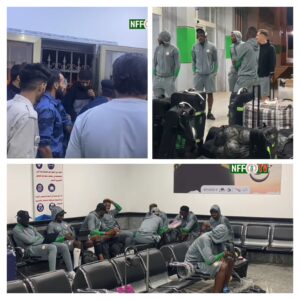

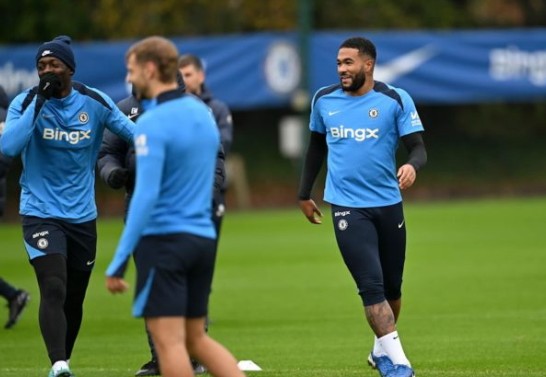


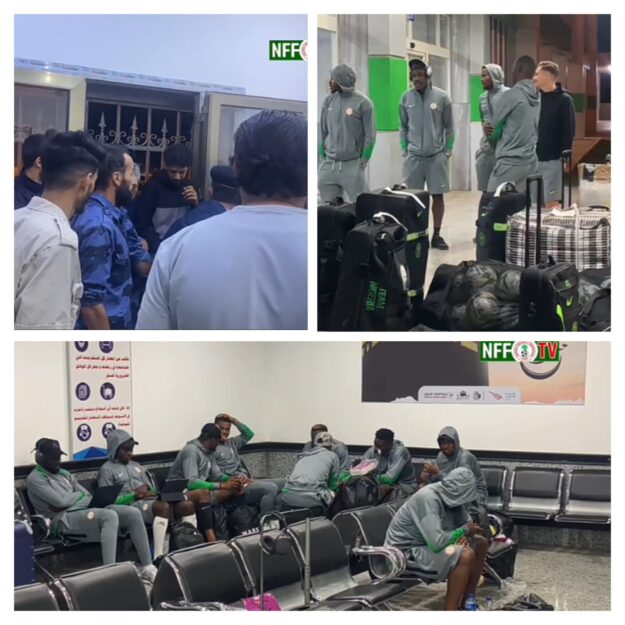
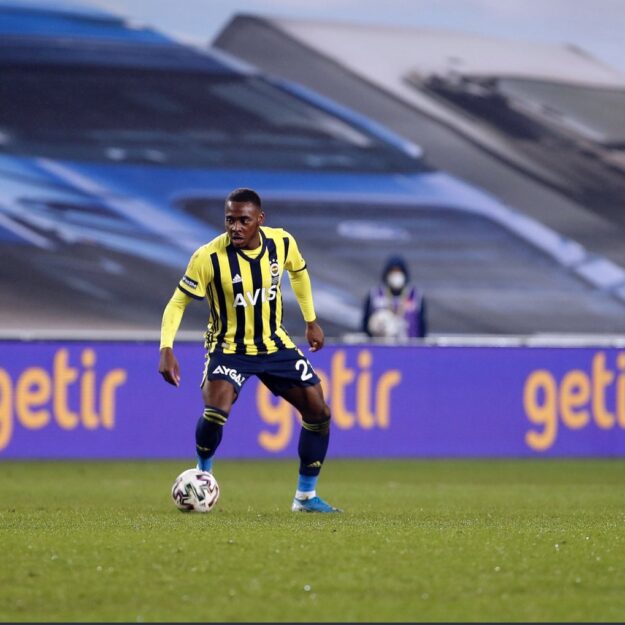

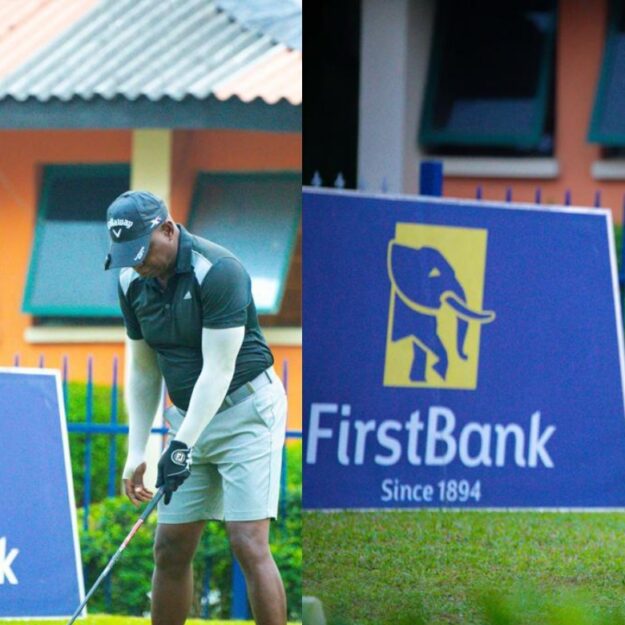
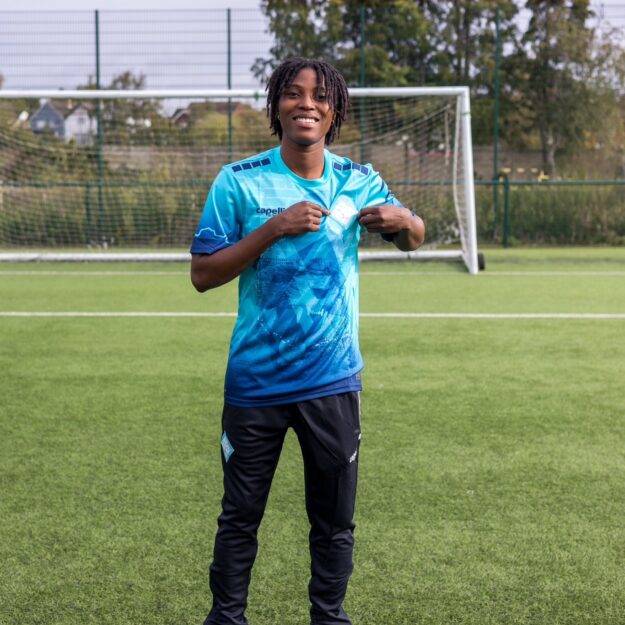


![American Pastor, David Wilson Seen Eating The Box Of Woman Who Isn’t His Wife [Video]](https://onlinenigeria.com/wp-content/uploads/2019/10/american-pastor-david-wilson-seen-eating-the-box-of-woman-who-isnt-his-wife-video-150x150.jpg)









